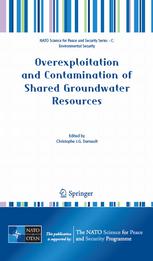

Most ebook files are in PDF format, so you can easily read them using various software such as Foxit Reader or directly on the Google Chrome browser.
Some ebook files are released by publishers in other formats such as .awz, .mobi, .epub, .fb2, etc. You may need to install specific software to read these formats on mobile/PC, such as Calibre.
Please read the tutorial at this link: https://ebookbell.com/faq
We offer FREE conversion to the popular formats you request; however, this may take some time. Therefore, right after payment, please email us, and we will try to provide the service as quickly as possible.
For some exceptional file formats or broken links (if any), please refrain from opening any disputes. Instead, email us first, and we will try to assist within a maximum of 6 hours.
EbookBell Team

4.4
62 reviewsForty percent of the world’s population depends upon increasingly scarce and shared water resources. This situation is critical at both international and national levels not only for socio-economic development, but also for the regional stability. The intensive use of groundwater for irrigation and water supply is adding pressures to scarce water resources and the environment through overexploitation and contamination which result in situations that may lead to conflicts. The book from the NATO ASI on “Overexploitation and Contamination of Shared Groundwater Resources Management, (Bio)technological, and Political Approaches to Avoid Conflicts” is written by authors from different disciplines and regions of the world. The aim of the book is to contribute to the knowledge of shared groundwater resources management to avoid conflicts by considering multi-disciplinary approaches based on effective and equitable water sharing for all water users through cooperation and within a compassionate ecological framework along with the need for sustainable resources development and the quest for environmental and human security. The scope of the book covers the hydrogeological, environmental, (bio)technological and management aspects of shared groundwater resources integrating social, economic and political dimensions as well as legal and educational perspectives.